
presents
the 65th annual
MATTHAY PIANO FESTIVAL
Pennsylvania State University
State College/University Park, Pennsylvania
June 28-July 1, 2023
focusing on
Matthay at the Intersection
Exploring the intersections of Matthay's ideas with the "Russian School":
Where are they similar, and where are they distinct?

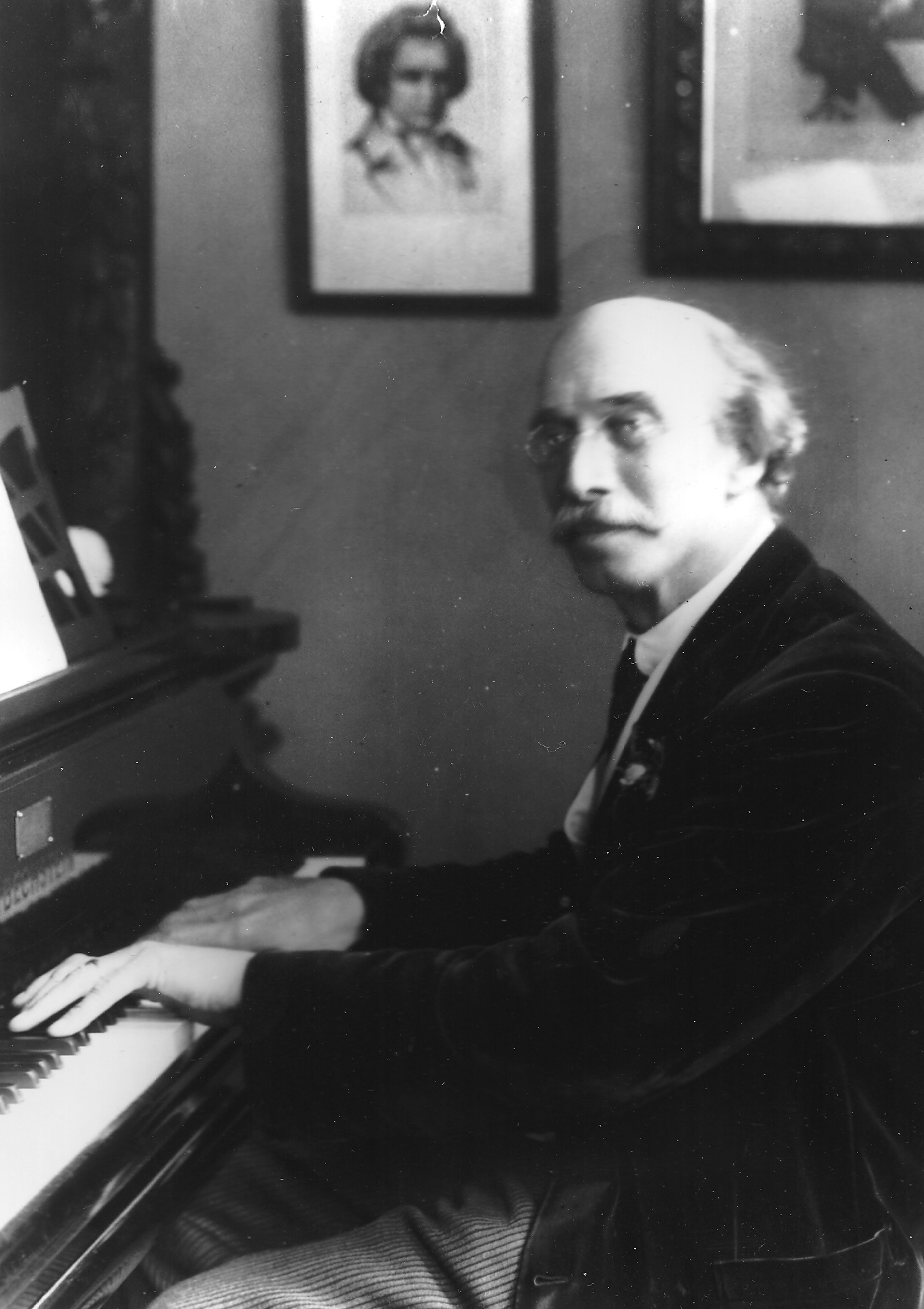
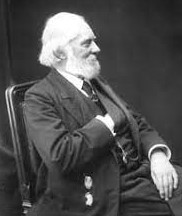
TOBIAS MATTHAY (1858-1945) was the foremost piano teacher Britain has produced, and in his lifetime,
he trained scores of famous pianists, including Dame Myra Hess,
Dame Moura Lympany, Sir Clifford Curzon, York Bowen, and Harriet Cohen.
Throughout the world, his revolutionary teaching principles were
communicated to thousands more by his books, including The Act of Touch (1903), Musical Interpretation (1912), and The Visible and Invisible
(1932). For nearly 50 years, he taught at London's Royal Academy of
Music, and for over 40, at his own school, which became a magnet for
countless numbers of pianists and teachers who established successful
careers in countries the world over—especially America.
But the 28-year-old Matthay's pianistic ideals were largely shaped by a Russian, for on May 18, 1886, he joined a packed house at London's St. James Hall to hear
ANTON RUBINSTEIN (1829-94, pictured at bottom right), considered by many to be the world's greatest pianist.
Within the span of about three weeks, Rubinstein gave seven additional programs, and they brought the young Matthay to a pianistic epiphany, for he marveled at the colors and effects the great master could
bring from his instrument. As the founder of the St. Petersburg Conservatory, Rubinstein might also rightly
be called the Father of Russian Pianism, for he began a tradition of pianistic excellence fostered by extreme
discipline and highly enlightened pedagogy. The first teacher he hired was not Russian, but the Austrian-born
THEODOR LESCHETIZKY (1830-1915, pictured at top left), a student of Carl Czerny, who trained scores of magnificent
pianists, including the legendary Anna Yesipova, whom he later married. By the century's end, St. Petersburg's sister institution, the Moscow Conservatory,
had also trained pianistic titans such as Rachmaninoff, Scriabin, and Josef Lhévinne, and after World War II, Moscow's
HEINRICH NEUHAUS (1888-1964, middle left) was known internationally as the teacher of Richter, Gilels, and Lupu. The Russian traditions were also
brought directly to America, when
after the Revolution, Lhévinne and his wife ROSINA (1880-1976, bottom left) fled to America where they taught at Juilliard.
After Josef's death in 1944, Rosina famously carried on as one of the world's great teachers, training such giants as Cliburn and Browning.
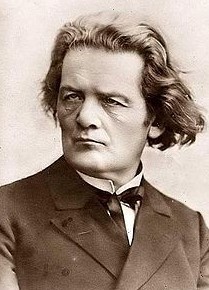
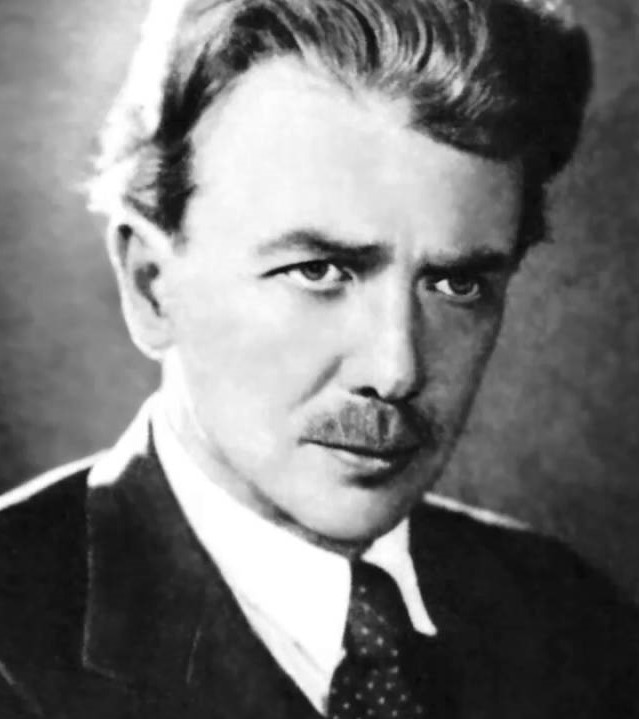 But exactly what did the Russian School teach? Matthay left scores of books, pamphlets, and essays to
document his teaching principles, but the combined notable writings of Russian pedagogues are scant by comparison. This summer our
program will include a symposium moderated by Penn State emeritus professor and current AMAP President STEVEN HERBERT SMITH to explore this topic.
The participants will include our special guest artist, the Russian-born and trained ALEXANDER KOBRIN, as well as other British and American scholars.
In addition, we'll be offering numerous presentations ranging from the influence of British philopsopher Herbert Spencer on Matthay, to the current state of British pianism in the post-Matthay era.
Other topics will include the relationship of Matthay's ideas to "The Music Tree" series of Frances Clark, explored by pianist and pedagogical specialist
JENNIFER SHOUP, and a survey of recent books by their authors, including BRADFORD GOWEN's A Performer's Guide to the Piano Music of Samuel Adler
(University of Rochester Press, 2022),
and pianist and scholar RICHARD MASTERS's forthcoming An Encyclopedia of American Pianists, from the 1800s to the Present (Rowman & Littlefield, 2023).
But exactly what did the Russian School teach? Matthay left scores of books, pamphlets, and essays to
document his teaching principles, but the combined notable writings of Russian pedagogues are scant by comparison. This summer our
program will include a symposium moderated by Penn State emeritus professor and current AMAP President STEVEN HERBERT SMITH to explore this topic.
The participants will include our special guest artist, the Russian-born and trained ALEXANDER KOBRIN, as well as other British and American scholars.
In addition, we'll be offering numerous presentations ranging from the influence of British philopsopher Herbert Spencer on Matthay, to the current state of British pianism in the post-Matthay era.
Other topics will include the relationship of Matthay's ideas to "The Music Tree" series of Frances Clark, explored by pianist and pedagogical specialist
JENNIFER SHOUP, and a survey of recent books by their authors, including BRADFORD GOWEN's A Performer's Guide to the Piano Music of Samuel Adler
(University of Rochester Press, 2022),
and pianist and scholar RICHARD MASTERS's forthcoming An Encyclopedia of American Pianists, from the 1800s to the Present (Rowman & Littlefield, 2023).
In addition, our daytime sessions will include selected works of George Enescu performed by JIM LEES, the Schumann Fantasy discussed and performed by STEVEN HERBERT SMITH,
pianist and scholar TERRY McROBERTS performing works by Matthay's pupil Arnold Bax and other composers, all dedicated to his famous pupil Harriet Cohen,
and LIA JENSEN-ABBOTT performing selected variations from the last 200 years on the famous Diabelli theme which Beethoven memorialized in his Opus 120.
The full program may be found here.
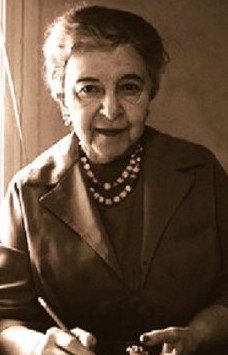
TOP LEFT: Theodor Leschetiztky (1830-1915)
CENTER LEFT: Heinrich Neuhaus (1888-1964)
BOTTOM LEFT: Rosina Lhévinne (1880-1976)
The annual Matthay Festivals are designed to offer participants direct
and
concentrated access to the Matthay teaching principles as they apply at
all levels, including that of the performing artist. Daytime sessions
include lectures, demonstrations, performances, a master class with this year's
CLARA WELLS FINALISTS, and
a recital is heard each evening.
The year 2023 marks the sixty-fifth annual gathering. Previous Matthay
Festivals have taken place at many locations throughout North America,
including the Philips Academy at Andover, Massachusetts, the University
of Maryland, the
University of Central Florida, the Royal Conservatory of Music in
Toronto, San Jose State University, Williams College, the University of South Carolina, Wittenberg
University, the University of Kansas, Columbus State University, the
University of
Richmond, East Carolina University, Union University,
Western Carolina University, Texas Wesleyan University, the Eastman School of Music, Arizona State University,
the University of Alabama, and The College of St. Scholastica in Duluth, Minnesota.

Featured Recitalists

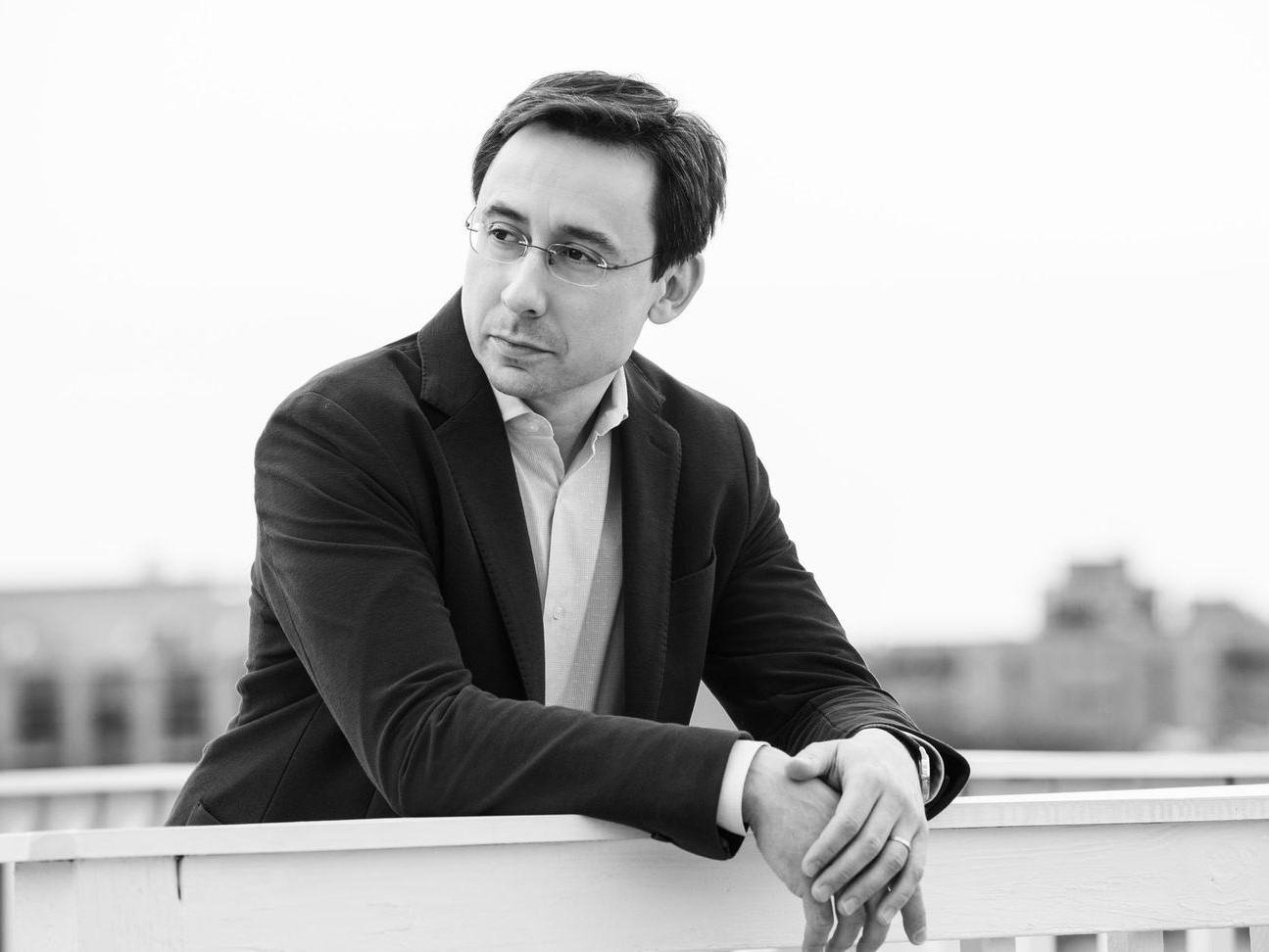
will
be our featured guest artist. The Van Cliburn Gold Medalist of 2005, he has been called the “Van Cliburn of today” by the BBC, and has placed himself at the forefront of today's performing musicians.
His prize-winning performances have been praised for their brilliant technique, musicality, and emotional engagement with the audience. The New York Times has written that
he "surrendered neither the smoothness nor the dynamic fluidity that the modern piano allows, and he gave his sense of fantasy free rein,
creating an almost confessional spirit," and that
his performance was a “fastidious guide” to Schumann’s “otherworldly visions, pointing out hunters, flowers, haunted corners and friendly bowers, all captured in richly characterized vignettes.”
After his performance
of the Brahms Second with Syracuse Symphony, one critic wrote, “This was a performance that will be revered and remembered as a landmark of the regeneration
of exceptional classical music in Central New York.” Born in Moscow, at the age of five, he was enrolled in the world-famous Gnessin Special School of Music, after which he
attended the prestigious Moscow Tchaikovsky
Conservatoire. His teachers have included renowned professors Tatiana Zelikman and Lev Naumov.
He immigrated to the United States in 2010 and became a US citizen in 2015. Since 2017, he has served as a professor at the Eastman School of Music.

received her Bachelors Degree
in Piano Performance from the University of Western Ontario
in London, Canada as a student of John Paul Bracey. She then continued her studies in Paris with French pianist
Cecile Ousset. While in Paris, she also earned the Diplome Supérieur en Musique de Chambre at the Ecole Normale de Musique. Since the
completion of a Masters Degree in Piano Performance and Literature with Barry Snyder at the Eastman School of Music, Ms. Lanners has worked
as the Opera Coach at both the Cleveland Institute of Music and the University of Akron. Some of her professional engagements have included
performing regularly as the pianist for the Cleveland Opera on Tour, and as a resident pianist for the prestigious Meadowmount School of Music String Camp.
Professor Lanners has performed extensively throughout the United States, Canada, and Europe in both solo piano
and chamber music. She has performed in public master classes for such artists as Jean Barr, Natalia Antonova,
Robert Silverman, Anner Bijlsma, and Tsuyoshi Tsutsumi. She has participated with full scholarship in the Holland Summer Music Sessions,
where she performed daily in public master classes and recitals located in and around Amsterdam.
Ms. Lanners is engaged frequently as an adjudicator throughout Oklahoma, Texas, and Kansas. She has also served as
the Chair for the OMTA and MTNA State Piano Competitions (2006-2014). She is active as a guest lecturer, having presented lecture-recitals at the Eastman School
of Music Summer Piano Festival and for the Oklahoma Music Teachers Association Conference. Ms. Lanners has also served on the faculty of the Oklahoma
Summer Arts Institute and as a featured artist at the Amadeus Piano Festival in Tulsa, Oklahoma. She teaches applied piano, piano pedagogy, and class piano at
Oklahoma State University.
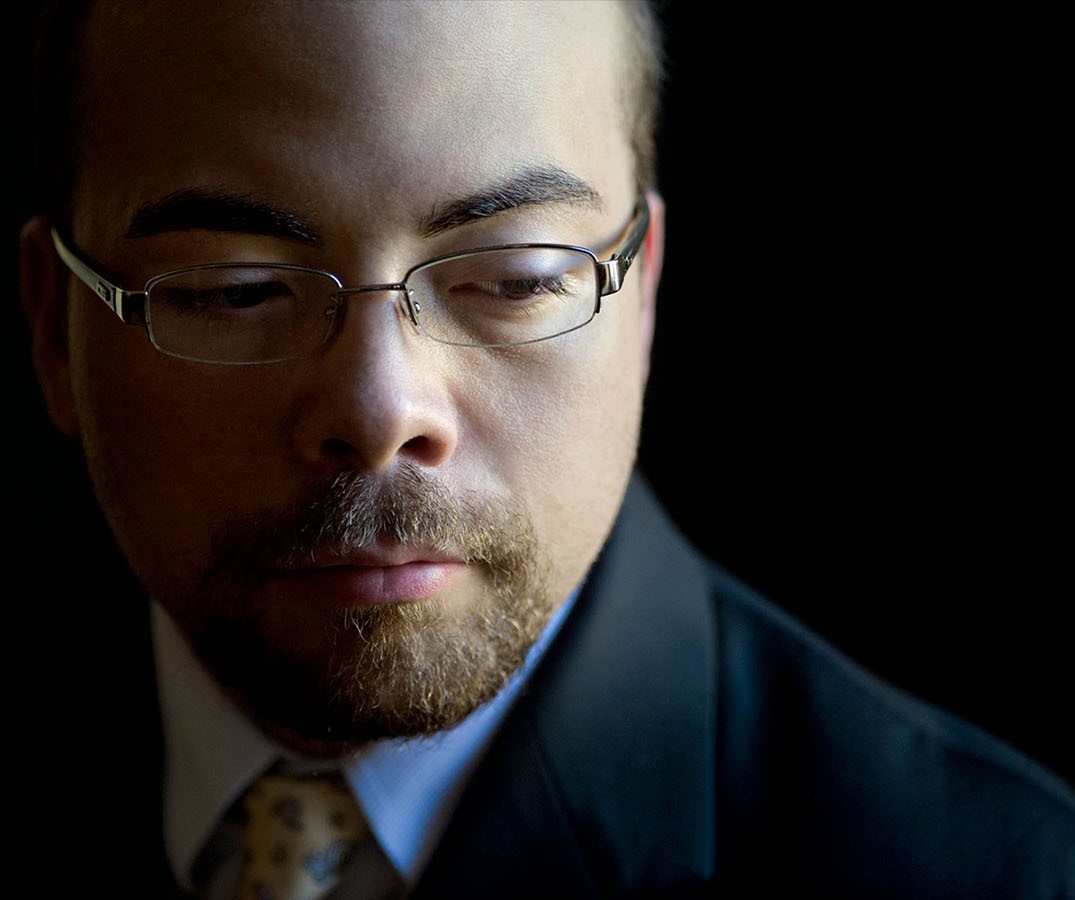
enjoys an international performing career, showcasing a broad range of styles from the Baroque era to the avant-garde. Since winning top prizes in international competitions such as the Walter M. Naumburg Competition (USA), the Seoul International Music Competition (S. Korea) and the Isang Yun Competition (S. Korea), Mr. Guzman has performed across Europe, North and South America, and Asia. As a result of winning the top prize at the Concours International de Piano d’Orléans in Orléans, France, he has toured France extensively, giving performances and teaching masterclasses.
He has appeared in concert in major international venues as Tokyo’s Suntory Hall, Leipzig’s Gewandhaus, Buenos Aires’s Kirchner Cultural Center, Carnegie’s Weill Hall, London’s Wigmore Hall and others. As a chamber musician, he has collaborated with the classical music world’s most exciting soloists, including Ilya Gringolts, Antoine Tamestit, David Fray, and Jeremy Denk, among others. He continually performs with members of the world’s finest orchestras, including the Berliner Philharmoniker, the Philadelphia Orchestra, the San Francisco Symphony, the New York Philharmonic, and the Seoul Philharmonic Orchestra. He appears regularly on the New York Philharmonic’s chamber music series “Philharmonic Ensembles,” and recently performed with musicians of the Chicago Symphony at their home in Orchestra Hall.
While Mr. Guzman has won multiple international prizes for his performances of traditional repertoire, much of his career has been centered on music written after 1900; his performances have included world premieres by Donald Martino, Nico Muhly, and Paul Schoenfield. The New York Times hailed his performance of Christopher Theofanidis’s Statues as “coiled” and “explosive.” His CD of German and Austrian music from the past one hundred years, Vienne et après, is available on the Tessitures label; his CD of music of Paul Reale on the Naxos Label, “Chopin’s Ghosts,” was included in Fanfare magazine’s Top Five releases of 2018. He has subsequently recorded two additional albums of Reale’s music, including chamber music and concerti, to much critical acclaim. Mr. Guzman will release a premiere video recording of piano works of Mexican composer Carlos Chávez in 2023.
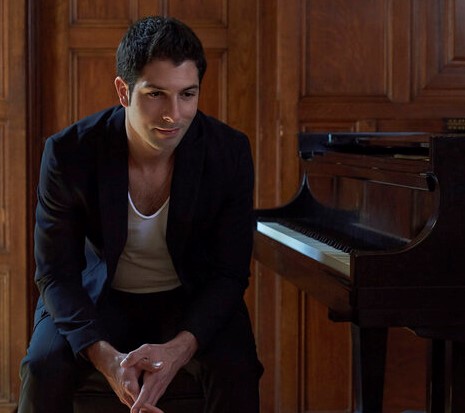
is the current vice-president of the American Matthay Association and winner of the college division of the
2017 Clara Wells Fellowships. He has also received the 2015-2017 National Federation of Music Clubs Young Artist Award, and
he has fulfilled numerous engagements across the country as performer, masterclass clinician, competition adjudicator, lecturer, and community outreach speaker.
Recent career highlights include the 2016 release of his debut recording, Scarlatti Now, two concerts for the Princess von Hohenzollern at her castle in Namedy, Germany, and his
performance at the Tivoli Vredenburg in Utrecht, The Netherlands, during the semifinals of the 2014 International Franz Liszt Piano Competition. Other noteworthy appearances
include a performance at Klavierfestival Ruhr and concerto solos with the Omaha Symphony, Wiener Residenz Orchester, and St. Louis Chamber Orchestra among others.
A native of St. Louis, Missouri, Dr. Susi is Assistant Professor of Piano at the University of South Carolina. He previously taught piano and music theory at The College of St. Scholastica in Duluth, Minnesota.
He completed his doctorate at the University of Michigan, with previous studies at the University of Kansas and at the Hochschule für Musik und Tanz Köln as a two-time DAAD grantee. Primary teachers include
Zena Ilyashov, Jack Winerock, Nina Tichman, and Arthur Greene. For details
on upcoming performances, booking information, and further listening, please visit his website: www.nicholas-susi.com

The School of Music at Penn State

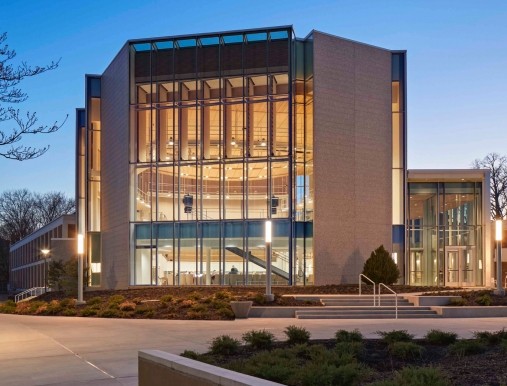
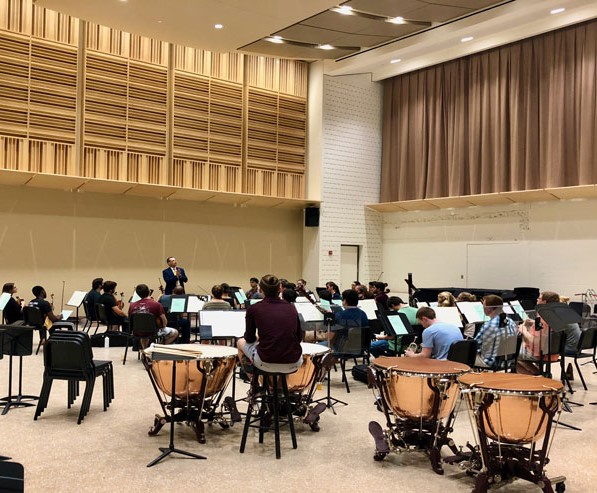
Founded in 1855, The Pennsylvania State University is the Commonwealth's only land-grant institution and a member of the Big Ten Conference. Situated within the beauty of the central Pennsylvania foothills, the University Park campus offers outstanding programs in a wide range of disciplines.
The School of Music, a unit of the College of Arts and Architecture, takes pride in its student-centered philosophy and the quality of the individualized
instruction provided by its 50 full-time faculty, guest artists, and scholars. Enrolling approximately 325 students, the School grants undergraduate and
graduate degrees in a wide range of programs that help students develop as performers, teachers, and scholars. It also serves an additional 1,000 students annually
who enroll in its high-quality academic courses designed to fulfill general education requirements.
The centerpiece of the newly renovated facilities is the new Recital Hall (seen at left), completed in 2018.
Hailed as an acoustically superb design, its 420-seat vineyard style design hosts over 300 performances each year.
Among its innovative features are 200 individual custom wood ceiling panels suspended six feet below the roof, and it also houses two Hamburg
Steinway Ds with sequential serial numbers.
The former Recital Hall, now Esber Rehearsal Hall (seen at right). has been extensively remodeled into a state-of-the art rehearsal space
with a sprung floor, acoustic panels on the walls, and an acoustic curtain which improves the sounds of the 1963 cement block room.
The School is served by two major buildings. Music Building I, constructed in 1963, houses classrooms and seminar rooms, Esber Rehearsal Hall, the choral
rehearsal room, a graduate resource center, the choral music library, faculty and graduate student offices, all music administrative offices, and organ practice rooms.
Connecting to Music Building I by a second-floor breezeway and student lounge, Music Building II was constructed in 1993. It houses
faculty studios and graduate student offices, percussion studios and storage, classrooms, the instrumental ensemble library, music technology facilities, numerous practice rooms,
a piano lab consisting of 17 Yamaha Clavinovas, and a suite of four recording studios that serve the dual purposes of providing training in audio production and of
producing professional quality audio projects.
Lodging and Banquet
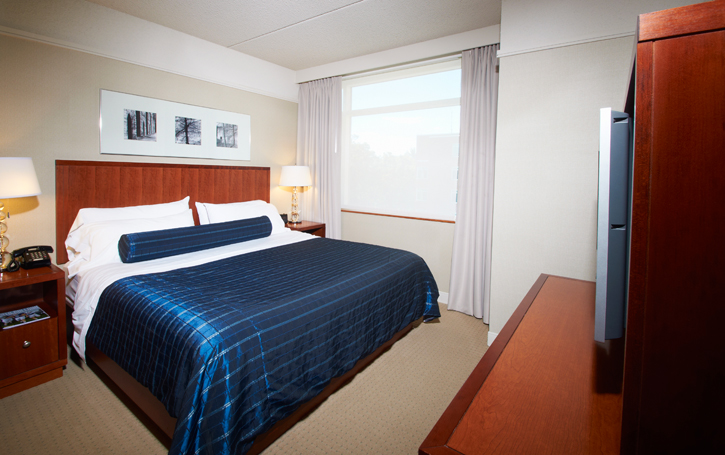
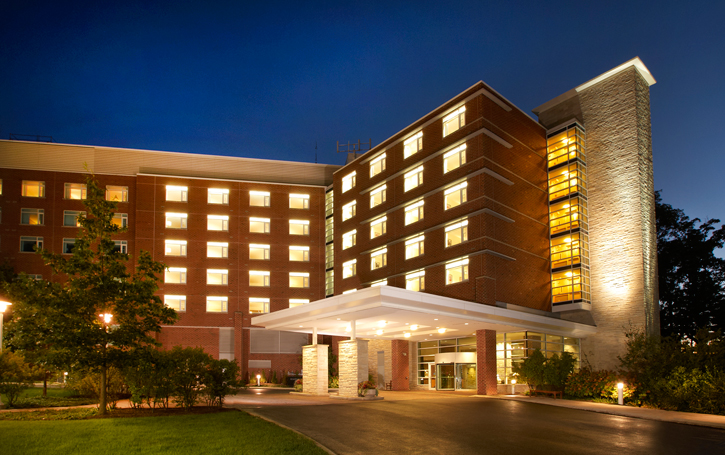
Festival participants are responsible for their own housing arrangements. This year, a block of rooms
has been reserved at the world-class Penn Stater Hotel & Conference
Center, 215 Innovation Boulevard,
State College, PA 16803 (814) 863-5000.
The Penn Stater's 300 rooms offer comfort and top-notch amenities in graciously appointed accommodations.
The staff members pride themselves on personalized service and attention to detail, and everyone at the Penn Stater
is committed to providing the level of service that brings guests back time after time. The hotel also offers first-class
dining experiences, as well as a fitness center, including aerobic and Nautilus equipment, an indoor lap pool, and a whirlpool.
For the week of the Festival, rooms will be available, including WiFi, for $114 a night, single or double.
(Please be advised that the hotel will only hold this block until May 27, and
Festival attendees are advised to use the code "MATT23J" when phoning, to guarantee the $114 rate.) Parking is free, and the hotel also offers a free shuttle to the campus, which is about three miles away. A complimentary airport shuttle is also available.
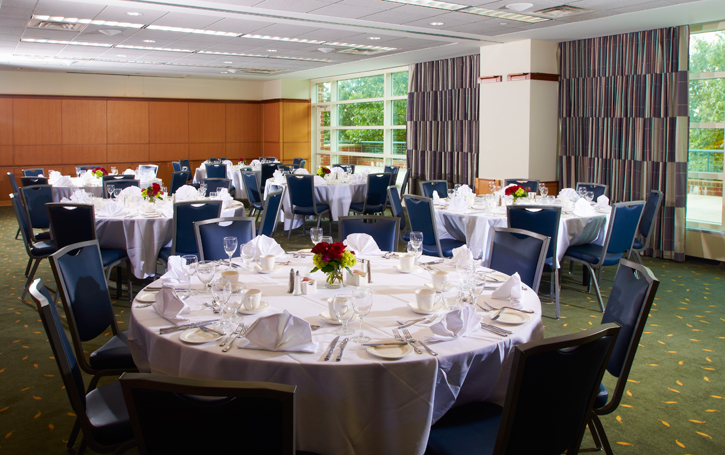

This year's banquet will also take place at the Penn Stater, on Saturday, July 1, with a cash bar opening at 5:45 pm, followed by dinner at 6:15. This year,
diners will have a choice of either 1) slow roasted beef sirloin, 2) chicken thigh osso bucco, or 3)
(a vegetarian option) smoked portobello mushrooms paprikas with spaetzle. Dinner will also include a salted caramel torte for dessert.
The inclusive price for everything except drinks will be $50.
Follow the registration link at the bottom of this page to indicate your choice.
Travel to Pennsylvania State University
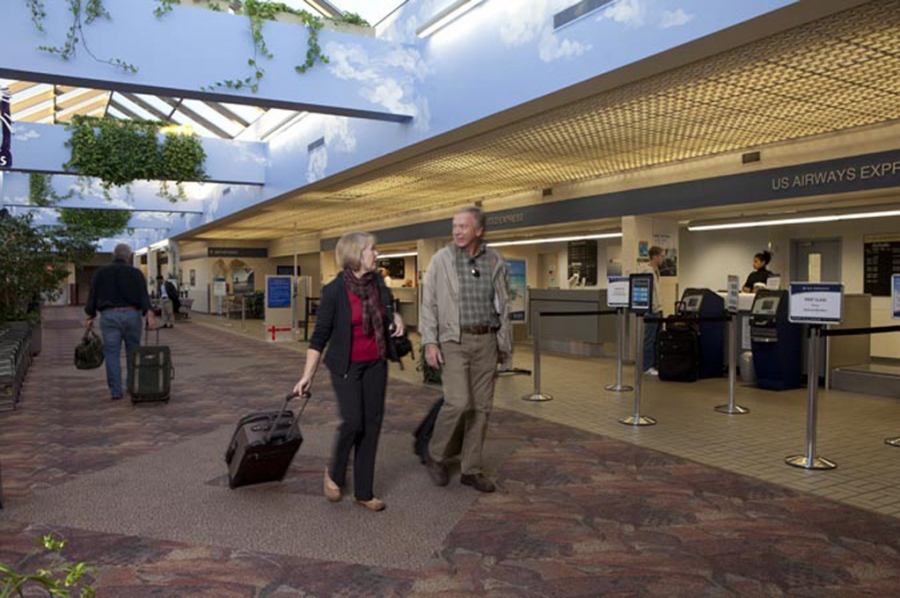
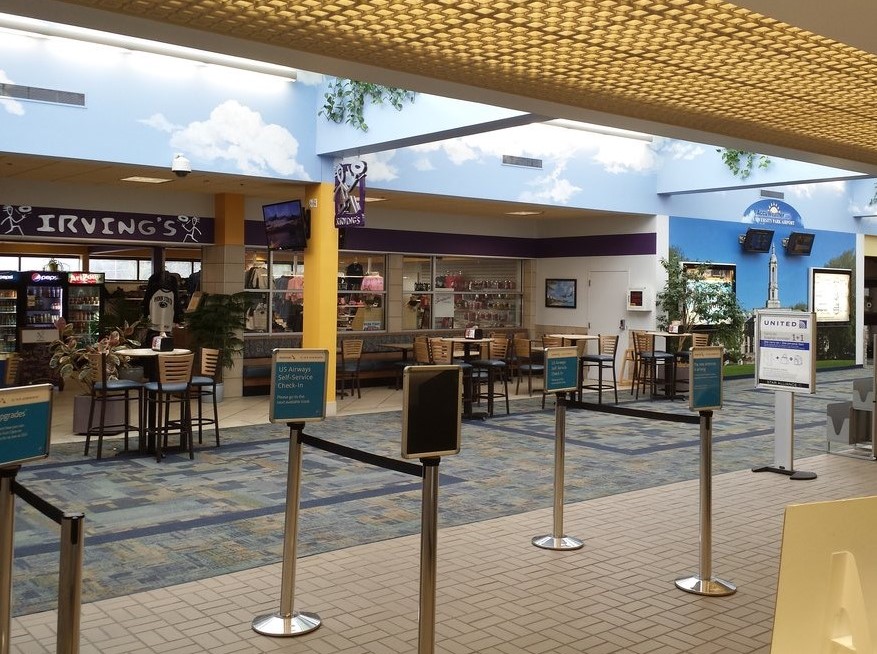
Penn State is serviced by University Park Airport, just minutes away from
campus, which now offers direct flights to major hubs including Chicago, Philadelphia, Newark, and New York LaGuardia.
Connecting flights are also convenient and frequent.
The airport's code is SCE and it is currently served by Delta, United, and American.
Avis, Hertz and National car rentals are also available as well as free WiFi, a café, courtesy airline baggage scales, ATM banking services, and local hotel phones to call for reservation and limousine services.
For printable driving directions to the Penn Stater, please click
here.
 Festival Program
Festival Program
 Festival Biographies
Festival Biographies
 Festival Registration
Festival Registration
 Back to Matthay Home Page
Back to Matthay Home Page






 But exactly what did the Russian School teach? Matthay left scores of books, pamphlets, and essays to
document his teaching principles, but the combined notable writings of Russian pedagogues are scant by comparison. This summer our
program will include a symposium moderated by Penn State emeritus professor and current AMAP President STEVEN HERBERT SMITH to explore this topic.
The participants will include our special guest artist, the Russian-born and trained ALEXANDER KOBRIN, as well as other British and American scholars.
In addition, we'll be offering numerous presentations ranging from the influence of British philopsopher Herbert Spencer on Matthay, to the current state of British pianism in the post-Matthay era.
Other topics will include the relationship of Matthay's ideas to "The Music Tree" series of Frances Clark, explored by pianist and pedagogical specialist
JENNIFER SHOUP, and a survey of recent books by their authors, including BRADFORD GOWEN's A Performer's Guide to the Piano Music of Samuel Adler
(University of Rochester Press, 2022),
and pianist and scholar RICHARD MASTERS's forthcoming An Encyclopedia of American Pianists, from the 1800s to the Present (Rowman & Littlefield, 2023).
But exactly what did the Russian School teach? Matthay left scores of books, pamphlets, and essays to
document his teaching principles, but the combined notable writings of Russian pedagogues are scant by comparison. This summer our
program will include a symposium moderated by Penn State emeritus professor and current AMAP President STEVEN HERBERT SMITH to explore this topic.
The participants will include our special guest artist, the Russian-born and trained ALEXANDER KOBRIN, as well as other British and American scholars.
In addition, we'll be offering numerous presentations ranging from the influence of British philopsopher Herbert Spencer on Matthay, to the current state of British pianism in the post-Matthay era.
Other topics will include the relationship of Matthay's ideas to "The Music Tree" series of Frances Clark, explored by pianist and pedagogical specialist
JENNIFER SHOUP, and a survey of recent books by their authors, including BRADFORD GOWEN's A Performer's Guide to the Piano Music of Samuel Adler
(University of Rochester Press, 2022),
and pianist and scholar RICHARD MASTERS's forthcoming An Encyclopedia of American Pianists, from the 1800s to the Present (Rowman & Littlefield, 2023).

















 Festival Program
Festival Program
 Festival Biographies
Festival Biographies
 Festival Registration
Festival Registration
 Back to Matthay Home Page
Back to Matthay Home Page